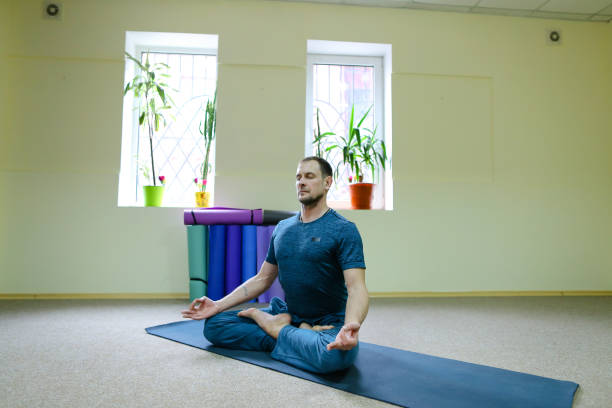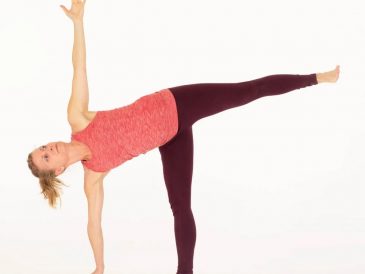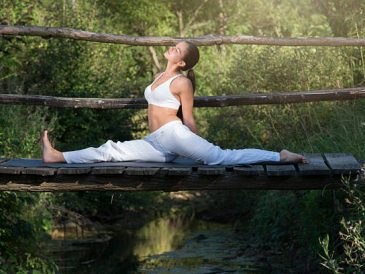In an era characterized by technological advancements and rapid societal changes, the allure of ancient practices continues to captivate individuals seeking solace from the chaotic modern world. From mindfulness meditation to yoga, these age-old traditions have withstood the test of time, offering a myriad of benefits for both body and mind. However, it is only through modern scientific research that we are beginning to unravel the profound impacts these practices can have on our overall well-being. In this article, we delve into the compelling evidence that supports the efficacy of ancient practices in promoting physical health, mental clarity, and emotional balance in the contemporary world.
Ancient Wisdom Meets Modern Science: The intersection of ancient wisdom and modern science has paved the way for groundbreaking research into the effects of practices such as meditation, yoga, and Tai Chi on the human body and mind. What was once considered esoteric or spiritual is now being scrutinized under the lens of rigorous scientific inquiry, leading to a deeper understanding of their tangible benefits.
Mindfulness Meditation: Mindfulness meditation, rooted in Buddhist traditions, has garnered widespread attention in recent years for its ability to cultivate present-moment awareness and promote emotional well-being. Numerous studies have demonstrated its effectiveness in reducing stress, anxiety, and depression while also enhancing cognitive function and fostering resilience.
Research utilizing neuroimaging techniques, such as functional magnetic resonance imaging (fMRI), has revealed that regular meditation practice can lead to structural changes in the brain, particularly in areas associated with attention, emotion regulation, and empathy. These findings suggest that mindfulness meditation not only alters subjective experience but also induces measurable changes in brain structure and function, underscoring its potential as a therapeutic tool for mental health disorders.
Yoga: Originating in ancient India, yoga is a holistic practice that integrates physical postures, breath control, and meditation to promote harmony between the body, mind, and spirit. While yoga has long been revered for its physical benefits, including improved flexibility, strength, and balance, contemporary research has illuminated its profound effects on mental health and overall well-being.
Studies have shown that regular practice of yoga can alleviate symptoms of chronic pain, insomnia, and mood disorders, such as depression and PTSD. Furthermore, yoga has been found to modulate the body’s stress response system, reducing levels of cortisol—the primary stress hormone—and promoting relaxation and emotional equilibrium.
Tai Chi: Tai Chi, an ancient Chinese martial art characterized by slow, flowing movements and deep breathing, has gained recognition in Western societies as a gentle yet powerful form of exercise for people of all ages and fitness levels. Rooted in Taoist philosophy, Tai Chi emphasizes the cultivation of internal energy (qi) and the harmonization of yin and yang forces within the body.
Recent research has highlighted the myriad benefits of Tai Chi for physical health, including improved cardiovascular fitness, balance, and proprioception. Moreover, Tai Chi has been shown to enhance cognitive function and reduce the risk of falls in older adults, making it a valuable tool for promoting healthy aging and preserving independence.
The Synergy of Body and Mind: What emerges from these diverse strands of research is a compelling narrative of the interconnectedness of body and mind. This concept lies at the heart of ancient practices such as meditation, yoga, and Tai Chi. Rather than viewing health as merely the absence of disease, these traditions recognize the dynamic interplay between physical, mental, and emotional well-being, emphasizing the importance of cultivating balance and harmony within oneself.
In today’s fast-paced world, where stress and burnout have become pervasive, the resurgence of interest in ancient practices offers a beacon of hope for those seeking refuge from the pressures of modern life. Whether through mindfulness meditation, yoga, or Tai Chi, individuals have access to powerful tools for self-care and personal transformation, enabling them to navigate life’s challenges with greater resilience and stability.
As we journey further into the 21st century, the wisdom of the ages continues to illuminate our path toward health and wholeness. Through the lens of modern science, we are rediscovering the profound benefits of ancient practices for both body and mind, affirming their enduring relevance in an ever-evolving world. By embracing these time-honored traditions and integrating them into our daily lives, we can embark on a transformative journey of self-discovery and holistic well-being.




